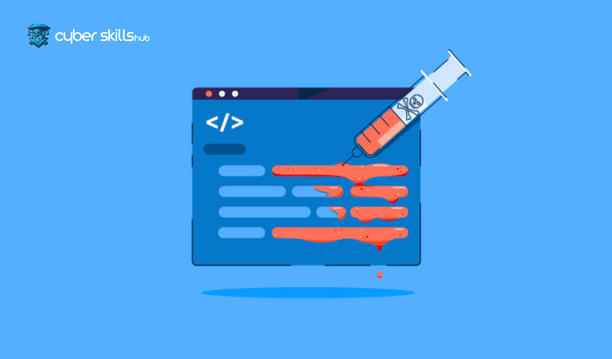Currently Empty: $0.00
SQL Injection Guide: Effective Prevention Strategies and Innovative Approaches in Cybersecurity

What is SQL Injection?
Definition and Basic Concepts of SQL Injection
SQL Injection is a type of cyber attack where malicious actors inject harmful SQL code into a web application’s database. These attacks can access the database to steal, alter, or destroy data. SQL Injection typically occurs when web applications fail to properly filter or validate user input and exploits vulnerabilities in database management systems.
The Importance of SQL Injection in Cybersecurity
In the world of cybersecurity, SQL Injection is considered one of the most common and dangerous types of attacks. Successful attacks not only lead to data loss, but can also cause significant damage to a company’s reputation and customer trust. Therefore, understanding and preventing SQL Injection is vital for software developers and web administrators.
How SQL Injection Attacks Work
Understanding SQL Injection Mechanisms
The fundamental mechanism of SQL injection attacks involves inserting malicious SQL statements into a web application’s database queries via user input. These insertions cause the queries to be interpreted in unexpected and dangerous ways. These attacks typically exploit security vulnerabilities in web applications to succeed.
Commonly Used SQL Injection Techniques
Some common techniques used in SQL injection attacks include invalid data inputs, manipulations in form fields, and queries designed to reveal hidden database information. Attackers may also target session cookies, URL parameters, and HTTP headers. Each technique requires different defense strategies.
The Effects of SQL Injection Attacks
Effects on Database Security
SQL injection attacks can seriously compromise an organization’s database security. Such attacks can lead to unauthorized data access, data modification, and even complete database deletion. A database security breach can also render other security controls within the system ineffective, resulting in widespread security vulnerabilities.
The Compromise of Personal Data and Corporate Data
SQL injection poses a serious threat to personal and corporate data. Attacks can compromise customer information, financial records, and other sensitive data. Such a data breach can undermine the trust of customers and business partners and lead to legal consequences. Furthermore, data leaks can result in reputational damage and financial losses.

Real-World SQL Injection Examples
Notable SQL Injection Attacks in History
Throughout history, many large companies and organizations have been subjected to SQL Injection attacks. This section examines some notable attack examples and explains how the attacks were carried out. These real-world examples serve as a valuable resource for better understanding the potential dangers and security vulnerabilities associated with SQL Injection.
The Consequences and Effects of the Attacks
The consequences of significant SQL injection attacks have often been devastating. This section examines the long-term effects of these attacks on affected companies and organizations. This underscores the importance of cybersecurity measures and the necessity of effective protection strategies.
Methods for Preventing SQL Injection
Input Validation and Parameterized Queries
One of the most effective ways to prevent SQL injection attacks is to use input validation and parameterized queries. Input validation is a process used to ensure the security of data received from users. Parameterized queries, on the other hand, are query structures designed to execute SQL commands securely. These methods prevent malicious inputs from being injected into database queries and enhance security.
Firewalls and Code Review
Firewalls protect web applications by monitoring incoming requests and blocking suspicious activity. Code review is the process of carefully examining the software’s code to identify security vulnerabilities and potential weaknesses. These processes are vital for preventing SQL injection attacks and are fundamental components of developing a secure web application.

Best Practices and Security Protocols
SQL Security Tips for Software Developers
There are some important tips for software developers to ensure SQL security. These include using secure coding techniques, keeping up with current security practices, and receiving regular security training. In particular, it is important to conduct regular code reviews to identify and fix vulnerabilities against SQL Injection.
Security Measures for Web Applications
To ensure the security of web applications, measures must be taken not only in coding practices but also at the application and server levels. These measures include the use of firewalls, SSL certificates, secure session management, and database access controls. Additionally, regular security audits and penetration tests are critical for continuously evaluating and improving the security of the application.
Future Steps in Combating SQL Injection
Current Security Trends and the Importance of Continuous Education
In the world of cybersecurity, trends are changing rapidly, increasing the importance of continuous education in combating threats such as SQL Injection. As new attack methods and defense techniques constantly evolve, staying up-to-date is vital. Our Cybersecurity Fundamentals course comprehensively covers the latest trends and security practices in this field. This course offers a wide range of knowledge, from basic security concepts to advanced defense strategies, and equips you to better defend against threats such as SQL Injection.
Being Proactive Against SQL Injection Threats
Adopting a proactive approach against SQL injection threats plays a critical role in preventing such attacks. This involves continuously identifying and addressing security vulnerabilities, updating security policies, and keeping up with technological developments. Being proactive also encompasses training and awareness programs. Cybersecurity Fundamentals Training provides comprehensive guidance and education on this topic, helping you be better prepared against cybersecurity threats.
Frequently Asked Questions About SQL Injection
What is SQL Injection?
SQL Injection is a type of cyber attack where malicious individuals inject harmful SQL code into a web application’s database. This attack can result in the theft, alteration, or destruction of data by gaining access to database information.
How do SQL injection attacks work?
SQL injection attacks occur by inserting malicious SQL statements into user input fields. These statements manipulate the web application’s database queries and can produce unexpected results, often targeting security vulnerabilities.
What are the effects of SQL injection attacks?
SQL injection can compromise database security, leading to unauthorized data access, data modification, and deletion. It also poses serious threats to personal and corporate data and can damage a company’s reputation.
How can SQL injection attacks be prevented?
To prevent SQL injection attacks, input validation and parameterized queries should be used. Defense methods such as firewalls and code reviews are also effective in protecting web applications from such attacks.
How can software developers protect themselves against SQL injection attacks?
Software developers should use secure coding techniques, receive regular security training, and review their code regularly. It is also important to keep up with current security practices and identify and fix vulnerabilities against SQL Injection.
What security measures should be taken for web applications?
Firewalls should be used to protect web applications, and techniques such as SSL certificates and secure session management should be implemented. Furthermore, it is critically important to continuously assess and improve the security of the application by conducting regular security audits and penetration tests.
What are the next steps in combating SQL injection?
Continuously monitoring cybersecurity trends and participating in training programs is essential for adopting a proactive approach against threats such as SQL Injection. Continuously identifying security vulnerabilities, updating security policies, and keeping up with technological developments play critical roles in this fight.







